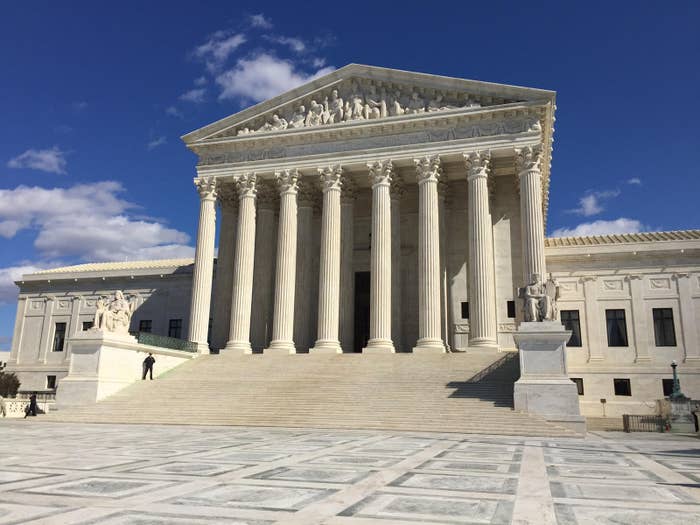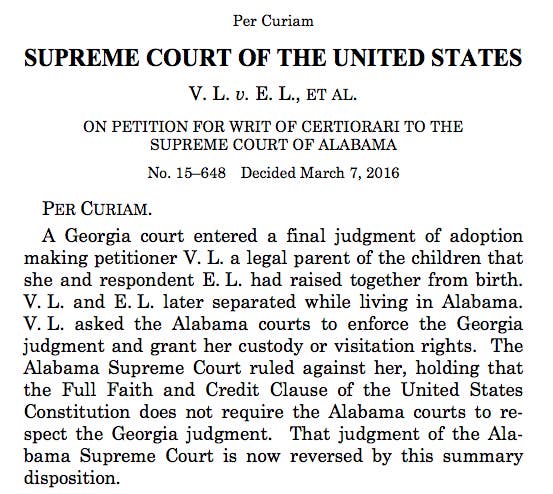
WASHINGTON — The Alabama Supreme Court overstepped its authority by refusing to recognize the adoption by a parent in a same-sex couple that was granted by a Georgia court, the U.S. Supreme Court ruled Monday.
The court issued the decision in a summary reversal on Monday morning, ruling in a brief, unsigned opinion that the Alabama Supreme Court had failed to give "full faith and credit" — a constitutional requirement — to a Georgia court's decision granting the adoption.
"The Georgia judgment appears on its face to have been issued by a court with jurisdiction, and there is no established Georgia law to the contrary," the court held. "It follows that the Alabama Supreme Court erred in refusing to grant that judgment full faith and credit."
No justices dissented from the decision.
The case had been pending before the justices since November, when V.L. asked the court to review the Alabama Supreme Court's decision holding that the Georgia court's adoption decree was invalid, a decision it reached because it found that the Georgia court had no jurisdiction — authority to even hear the case — under Georgia law to grant the adoption.
"That analysis is not consistent with this Court's controlling precedent," the U.S. Supreme Court ruled on Monday. When one state's court rules on a matter and indicates that it has jurisdiction, other state courts, under the Full Faith and Credit Clause, are to presume that jurisdiction is valid "unless disproved," the U.S. Supreme Court noted of its prior rulings on the issue.
On Monday, the U.S. Supreme Court held regarding the Georgia court's adoption decree, "There is nothing here to rebut that presumption."
In December, the U.S. Supreme Court had put the Alabama Supreme Court's order on hold temporarily, suggesting that a majority of the court believed there was a strong likelihood the U.S. Supreme Court would eventually reverse the Alabama court.
The case now goes back to the Alabama Supreme Court for further proceedings.

